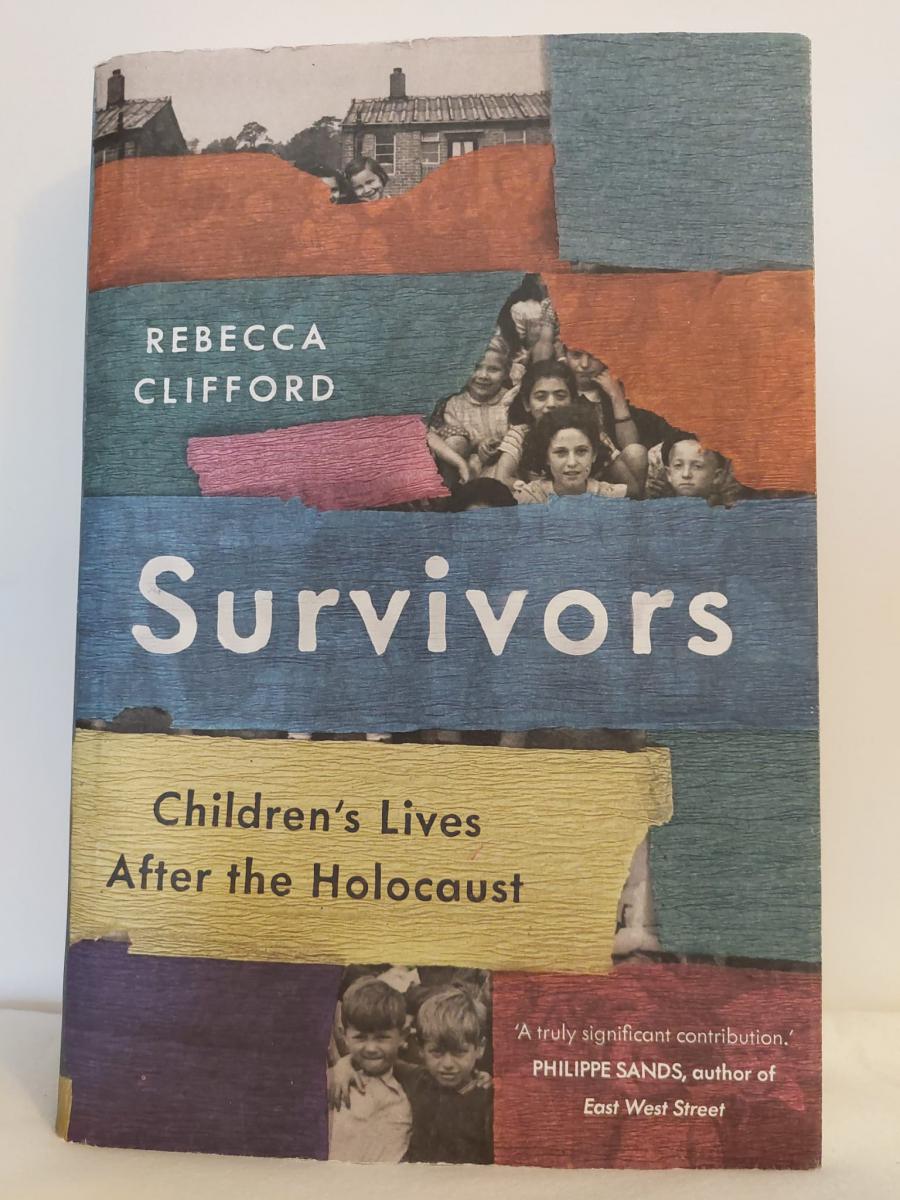

The prestigious International Book Prize for Holocaust Research, in memory of Benny and Tilly Joffe, z”l was awarded on 29 December 2022 to Prof. Rebecca Clifford, professor of European and Transnational History at Durham University, England, for her book, Survivors: Children’s Lives After the Holocaust, published by Yale University in 2020.
The book provides a sensitive and scholarly survey of the postwar lives of a group of 100 Jewish children who survived mostly due to rescue efforts, and who were no more than ten years old at the time of their liberation. These survivors spent most of their childhood and even their adult years knowing very little of their lives before the war – many had little or no information about their biological parents and their extended family. Prof. Clifford points out that child survivors of the Holocaust had to cope with specific difficulties and challenges, including searching for parents and relatives, multiple homes, and failed placements in either temporary care or permanent adoption.
Along with the hardships of building their lives anew, they struggled with the memory of their past and its impact on their identity.
According to the prize judges, "Prof. Clifford makes a major contribution to the field of Holocaust research… by providing a lens through which the reader can have a deeper understanding of the long arm of trauma. She not only describes the individual stories of surviving children but, as a skilled researcher, also presents a larger social history of their postwar rehabilitation and traces the administrative history of aid organizations and the development of psychological thinking and practice with regards to trauma and its effects."
The historiography of the postwar period speaks in broad strokes about the reestablishment of families as a symbol of the survivors’ resilience. While this is undoubtedly an important phenomenon, Prof. Clifford claims that it did not always address the painful experiences of parents who were neither physically nor emotionally able to take care of their biological children who, in some cases, were removed from their care. She also challenges the notion that in the postwar period, survivors of the Holocaust kept silent, or found no ear to listen to their stories, and by doing so she concurs with the conclusions of recent scholarship on this issue.
Prof. Clifford’s work is part of an important trend in research on childhood in general and children during the Holocaust in particular, which presents the children as active agents both during the war and in their postwar lives. She corrects the view of children as primarily passive victims, which reflects neither the historical record nor the realities of their potential to influence their own lives. While foregrounding the children’s agency is an important contribution to understanding these periods, however, the vulnerability of the most powerless victims of Nazi persecution should not be lost in the telling of this difficult historical chapter.
The Yad Vashem Book Award ceremony was held in the presence of the donors Brian and Lee Joffe, relatives and friends. Brian's speech reinforced the importance of Prof. Clifford's work as he emphasized the need for new perspectives in research and commemoration of the Holocaust.
“The most important component of Yad Vashem for me is that it is a living entity," said Brian. "It needs to be current. It needs to know and needs to grow in the world we live today.”
At the ceremony, Dr. Sharon Kangisser-Cohen, Director of the Diana and Eli Zborowski Center for the Study of the Holocaust and its Aftermath at Yad Vashem's International Institute for Holocaust Research, spoke about the postwar child survivor diaries through the example of child survivor Yehuda Bacon’s diaries.
During her Zoom lecture, Prof. Clifford discussed her reasons for writing the book and ways in which her research challenged previous presumptions and understandings.
"Over the last decade, there has been a significant development in the research of child survivors," explained Prof. Clifford. "We see a shift from investigating the histories of their childhood carried out by adult researchers to the children's own histories – in their own words. This is quite difficult to capture, because testimonies given by minors were not often archived… We habitually throw away the things children create, and this is no different. Finally, we are giving them back their voice."










